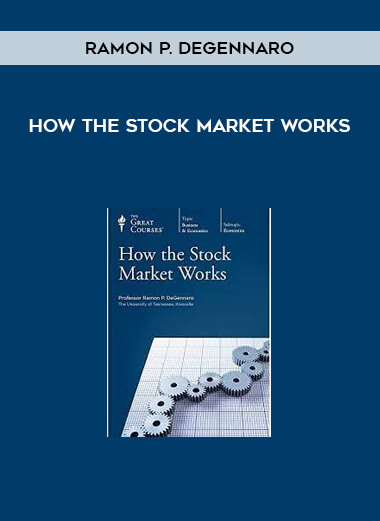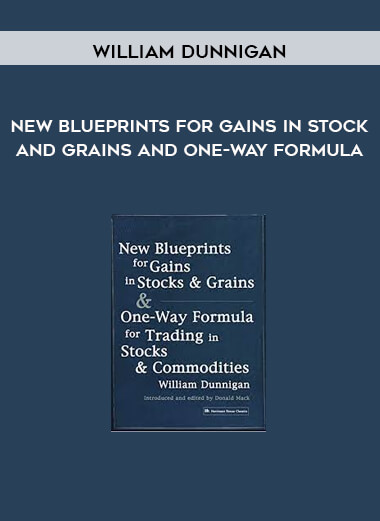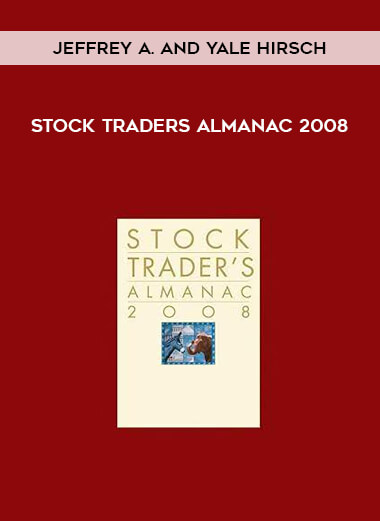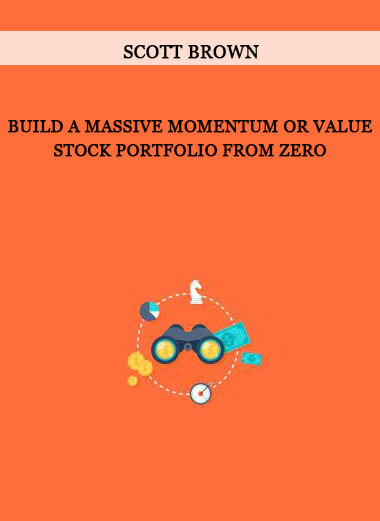Courses Infomation
Ramon P. DeGennaro – How the Stock Market Works
 Ramon P. DeGennaro – How the Stock Market Works
Ramon P. DeGennaro – How the Stock Market Works
**More information:
Description
7.49 GB in size
There are several methods to learn about the stock market. However, the majority of individuals cannot afford to learn the hard way by incurring costly errors.
Anyone may purchase a company’s valuable assets through the stock market, and traditionally, investing in stocks has given a fair potential for long-term returns. Your wealth is likely to increase as the economy expands if you have a well-diversified portfolio of individual equities or stock funds. However, a disproportionate number of investors give in to the high-risk quest to outperform the market by selecting winners, foreseeing price trends, or otherwise spotting opportunities that other investors have passed up.
Through brokerage accounts and retirement plans like IRAs and 401(k)s, millions of individuals from all walks of life invest in the stock market today.
Each investor must decide what stocks to buy and when to sell them, and they sometimes feel overrun by competing recommendations. The best strategy is to fully comprehend what the stock market is and how it operates, taking into account such fundamental fundamentals as these:
Success factors: A lot of individuals concentrate on raising their rate of return on equities, which is challenging to achieve without incurring large risks. Concentrating on two additional aspects that influence your income is significantly safer.
There is no such thing as a free lunch: If you miss the few unpredictable best trading days of the year, you won’t be able to make much money in the stock market. There are no free lunches, therefore if you stay involved in order to enjoy the good days, you will also have some bad days.
In particular, diversify:
Diversification is the closest thing to a free lunch in investing. Just holding three different stocks instead of one decreases portfolio variation by about 40% on average. That’s a significant reduction in risk that doesn’t cost anything in terms of expected returns.
For anyone who owns stocks or is thinking of entering the market, How the Stock Market Works provides indispensable advice from Dr. Ramon P. DeGennaro, an award-winning professor in banking and finance at The University of Tennessee, Knoxville. A congenial and straight-talking expert, Professor DeGennaro leads you through 18 detailed lectures that explain the stock market from the inside, introducing you to the factors that make company stocks rise and fall and the information you need to grasp the market’s role in the world economy, evaluate the relative soundness of stocks, and understand the stock investment options available to you.
Even if you have owned stocks for years, you’ll find How the Stock Market Works to be a helpful focus on the fundamentals of investing in stocks. And if you entrust the management of your assets to a financial advisor, this coursewill give you the insights you need to converse knowledgeably with him or her and be an informed participant in your own financial well-being.
Tailor Your Investments to Fit You
Your decision about whether and how to invest in the stock market should start with an understanding of the fundamental difference between stocks and bonds. Both represent claims on the assets of a company, but with different returns, different levels of risk, and a different relationship between you and the company.
As with other concepts presented in the course, Professor DeGennaro explains these key points with simple examples that are memorable and insightful. He also uses helpful charts, graphs, and other visual aids, some of which are reproduced in the course guidebook for audio customers.
The many topics you cover in How the Stock Market Works include these:
How to open a brokerage account and choose a financial advisor
The essentials of mutual funds, including index funds, and exchange traded funds (ETFs) (ETFs)
How to trade individual stocks, including how to use options
The relative advantages of traditional IRAs, Roth IRAs, and 401(k) plans
How to reduce transaction costs and take use of tax rules to your advantage
The risks of engaging in excessive trading and other harmful behaviors
Financial ideas and jargon that can help you comprehend business news and interact with your broker more effectively
The fundamentals of balance sheets, income statements, and cash flow statements for businesses
Attempt to Become Rich—Slowly
The introduction of How the Stock Market Works teaches the typical investor a valuable lesson. Consider yourself at home, observing the price of an interesting stock as it is shown on your computer screen. You suddenly notice a significant spike that rises and falls so quickly—in only a fraction of a second—that it hardly appears on your screen. What was it, you ponder?
According to Professor DeGennaro, dozens or perhaps hundreds of purchase and sell orders were automatically placed and cancelled by a sophisticated computer system. Some algorithms magnify a profit of a few hundredths of a penny many times over by taking advantage of minute pricing variations. Nobody who has access to such technologies can possibly hope to seize these insignificant and transient possibilities.
Professor DeGennaro advises not being deterred by the sophisticated methods used by experts. You may breathe easier since stock prices are as near as fair as possible due to their constant rivalry. You may make market investments with confidence knowing that most stock prices accurately represent their current market value. This illustrates the efficient market concept, which Professor DeGennaro has extensively discussed throughout the semester.
You are considerably less likely to make rash decisions when you approach investing as a long-term plan to increase your wealth rather than a competition with quick-thinking rivals. Professor DeGennaro advises that rather than aiming to get wealthy immediately, one should instead aspire to become comfortably wealthy over time without having to worry about losing everything.
Regardless of the investing method you choose, Professor DeGennaro suggests that you start right away. He equates investing and saving to growing a tree, going on a diet, or working out. The finest day to start was 15 years ago, but today ranks as the second-best day! Acting right away can do you a world of good.
Disclaimer:
These lectures only serve to give general financial information; they are not intended to serve as particular financial advice. There is an inherent risk associated with financial investing that you might lose some or all of your money. Prior to investing, investors must independently and in-depth research and examine each investment. Federal, state, and local tax liabilities, the loss of all or a portion of the investment money, interest rate losses, contract liability to third parties, and other risks not expressly included here are only a few of the potential repercussions of this risk. Because neither The Teaching Company nor its lecturers are responsible for your use of this educational material or its results, using these lectures does not establish a working relationship between you and a financial adviser. If you have any particular questions about financial investment, you should speak with a financial counselor. The thoughts and perspectives expressed in these lectures are those of the relevant speaker and may not represent those of The Teaching Company or its affiliates. Instead, they reflect the views of that particular lecturer. Any tax advice given in these lectures is prohibited from being utilized to avoid tax penalties or to advertise, market, or suggest any subject therein in accordance with IRS Circular 230.
The Teaching Company explicitly DISCLAIMS LIABILITY for any direct, indirect, incidental, special, or consequential damages or lost profits that may arise from the use of these lectures, whether directly or indirectly. Responsibility must be restricted to the fullest degree permitted by law in those states that do not permit some or all of the aforementioned limits of liability.
Salepage : Ramon P. DeGennaro – How the Stock Market Works









![Peter Titus - Create Your Own Automated Stock Trading Robot In EXCEL! [39 Video (MP4) + 2 Document (HTML)]](https://crablib.info/wp-content/uploads/2021/02/Peter-Titus-Create-Your-Own-Automated-Stock-Trading-Robot-In-EXCEL-39-Video-MP4-2-Document-HTML.jpg)






















Reviews
There are no reviews yet.